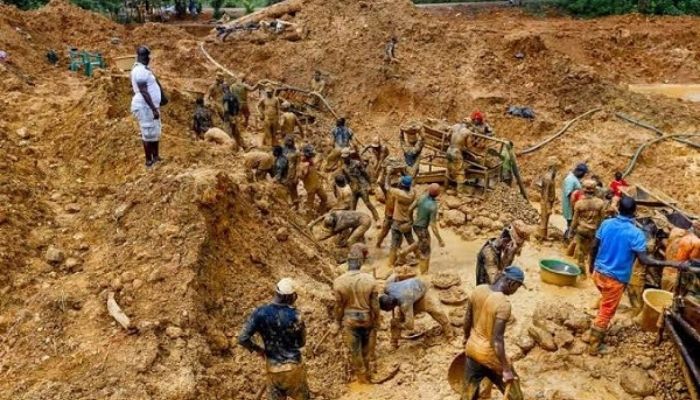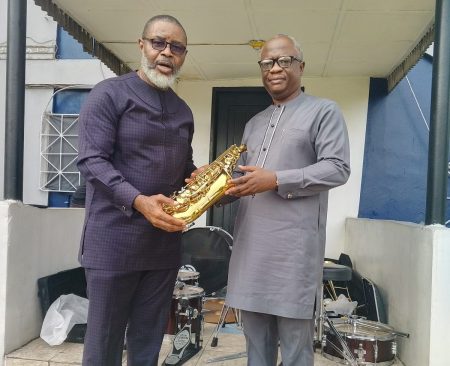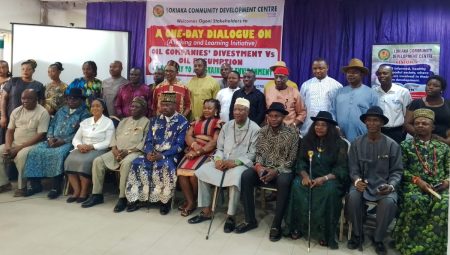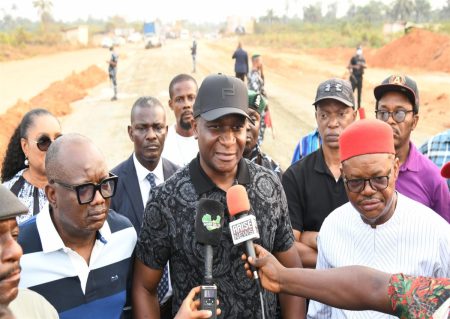
– As women, children bear brunt of mining exploitation
Mkpoikana Udoma
Port Harcourt — The Renevlyn Development Initiative, RDI, has advocated for the allocation of ecological funds to assist people and communities affected by mining activities, as well as for restoration efforts in areas ravaged by decades of extraction across Nigeria.
Renevlyn during a virtual training session for female journalists, advocated for comprehensive support measures, including proper decommissioning of mines and equitable distribution of ecological funds to restore and empower affected communities.
The Project Officer of Renevlyn Development Initiative, Ms. Ifeoluwa Komolafe, explained that the training was imperative to draw attention to the plight of mining communities across the country.
Komolafe noted that Renevlyn had conducted researches which showed that women were being used for hard manual labour without adequate compensation in mining sites across the country, particularly in Nasarawa State where young girls were being sexually exploited in mining sites.
She said, “RDI realizes that there are tons of unreported issues concerning extractive impacts on women and we reckon that the media is key not only in keeping the public informed as part of its watchdog role but also in robust reportage that ultimately translates into policy responses and actions.
“Women and Extractive Journalism Training is premised on the need for more robust and educative reports on women and the extractive industry in Nigeria. We desire that this training equips journalists with the information they need for better reporting of the issues, reporting that would lead to policy responses, and stakeholder engagement that respond to the impact of extractive activities on women, socially, culturally, and physically.”
Sharing her experience, a participant and daughter of a Miner from Enugu State, Ms. Ebere Ekeopara, described the perilous conditions miners face, disclosing that miners are poorly paid, while at the same time exposed to risks such as mines collapse, dynamite blasts, fumes inhalation, drowning, and death.
Ekeopara, who spoke on ‘Coal mining in Enugu State: stories from coal mines’ called for proper decommissioning of coal mines and the use of international best practices in mining activities in the country.
She also demanded proper compensation and gratuity for former miners and their families as well as the utilization of the Ecological Funds to restore impacted communities and their environment.
“Growing up as the daughter of a miner, I will authoritatively say that miners were not well paid at all their welfare was not taken seriously at all. They navigate through the deep mines daily, sometimes in total darkness. Due to the poor conditions of service in the coal mines, most former miners are today living in abject poverty and not able to give their children a quality life.
“Coal mining in Enugu was stopped in the early 2000 and since then it’s been one story of neglect to another. Most miners cannot take care of their families due to their poor remuneration. You find children of miners living in abject poverty. Most miners develop very serious sicknesses, and they end up relying on their wives for care. Sicknesses like spinal issues, respiratory problems, and other serious sicknesses.
“The government needs to settle former miners and in case of death, their dependents should receive their due. The government is presently thinking of re-starting coal mining in Enugu. Environmentalists are of the Idea that Coal is dirty Energy and should be discontinued nationwide, but illegal coal mines are scattered all over Enugu and other parts of Nigeria.”
Also speaking, Ms. Vanessa Adie, a media strategist, discussed the overlooked narratives surrounding women in artisanal mining and identified the hazards of mining on women including; chemical exposures and the effect on maternal and reproductive health.
Others are, “exposure to elevated levels of mercury, cyanide, methane, dihydrogen sulfide, and carbon monoxide; dust inhalation and the risk of respiratory diseases and lung cancer; heavy lifting, falling musculoskeletal disorders, overexertion, trauma and mental health issues, malnutrition, poor hygiene and the ripple effect, poor housing and inadequate medical health services especially in times of occupational hazards; sexual exploitation; physical violence and even death.”



